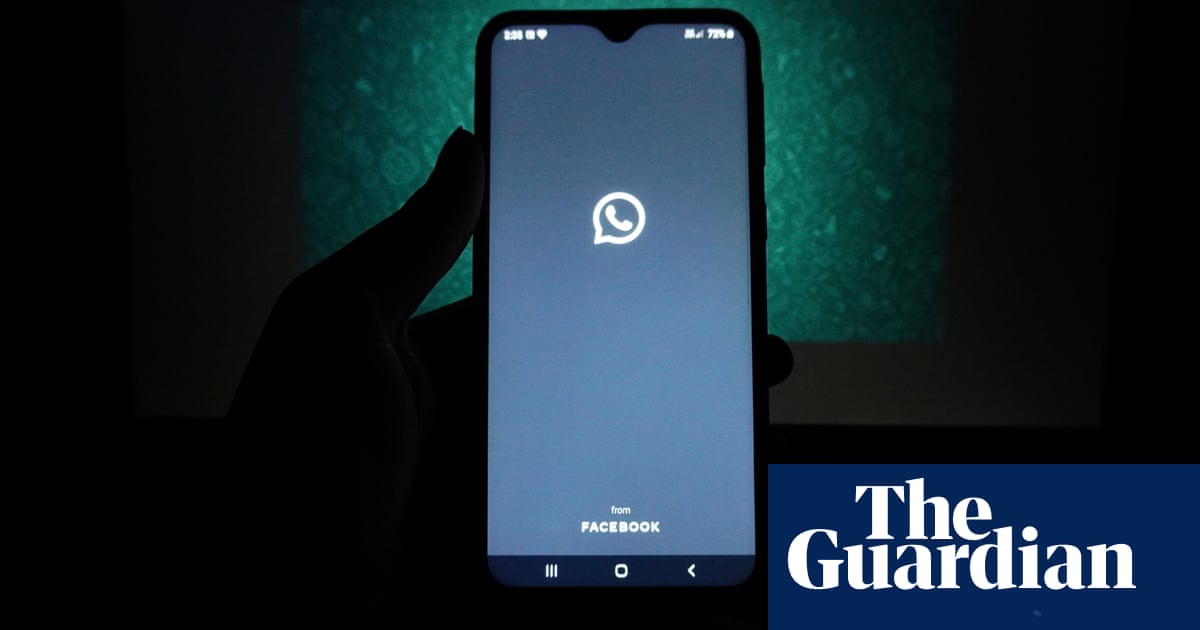WhatsApp Boss Decries Attacks On Encryption As Orwellian

Government attacks on WhatsApp’s end-to-end encryption are akin to demands that an Orwellian telescreen be installed in every living room, the app’s head has said as it launches a major advertising campaign in defence of privacy.
Will Cathcart told the Guardian in an interview that the abstract nature of digital communications can obscure huge violations of personal freedom.
“Imagine there was a proposal from the government to put a video camera in every living room in a country hooked up to the internet, so the government can turn it on when they’re investigating a crime,” he said.
“I think people immediately recoil in horror at that proposal, because they have a built-up understanding of just how bad that would be. And yet it feels like people can make identical proposals for a digital world. And because it’s technical, sometimes the horror of what’s being proposed is lost.”
The campaign is being launched after a turbulent six months for WhatsApp, in which a user revolt forced the company to delay plans to update its terms of service. Rival messaging apps including Telegram and Signal received millions of new signups, and the company ran a publicity campaign to reassure it users that they did not need to worry about the coming changes.
Cathcart said the backlash was further evidence that users wanted end-to-end encryption on their devices, a technology that protects communications so that no one – including the messaging service – is able to intercept them.
“The concern we heard, and the proof that they care, was ‘We’re worried you’re gonna start reading our messages’. We’re not. The privacy of people’s personal conversations did not change at all in any way with our update, let alone around end-to-end encryption. We think it is very important that people in the long term understand how the privacy of their personal messages is protected.”
WhatsApp is seeking to present a positive image of private messaging, said the company’s director of brand and consumer marketing, Eshan Ponnadurai. “We want to talk about the everyday benefits of end-to-end encryption and how that impacts your life,” he said.
The company is having to contend with increasing pressure from governments around the world, including the UK, which view end-to-end encryption as an unreasonable burden on law enforcement activities.
In a statement, Home Secretary Priti Patel said: “Social media companies like WhatsApp have a moral duty to protect children from horrific abuse on their platforms.
“Facebook’s end-to-end encryption plans will be detrimental to law enforcement’s ability to tackle this abuse, as well as the risk posed by terrorists who wish to inflict maximum harm on the public.
“We must work together to find a mutually acceptable way to protect public safety without compromising user privacy.”
Andy Burrows, NSPCC’s Head of Child Safety Online Policy, said: “WhatsApp should be showing a stronger commitment to protecting children, rather than spending money on an advertising campaign promoting its commitment to end-to-end encryption.
“NSPCC research shows 10% of child sex offences on Facebook-owned platforms take place on WhatsApp. But because they can’t see the content of messages, WhatsApp accounts for less than 2% of the child abuse that Facebook reports to police. Tech firms need to balance the fundamental rights of all users to privacy and safety, rather than simply ignoring the needs of children.”
Cathcart argues that the job of law enforcement is ultimately made easier by technology. “If you compare us with 30 years ago, today much more of our lives are digital … there’s much more available for law enforcement and police to look up on people to solve crimes than there was.
“All we’re saying is that the most sensitive thing, which is the private messages people send, should stay private. Beyond that, we do incredible work with the limited data we have,” he said.
The company bans 300,000 accounts a month on suspicion of sharing images of child sexual abuse, he said, and reports 400,000 leads to the National Center for Missing and Exploited Children in US every year, based on information such as IP addresses, profile pictures and user reports. “That is far ahead of any other end-to-end encrypted messaging service, big or small,” he said.
15-week ad campaign
The new ad campaign is “probably one of, if not the most significant that we’ve launched,” Ponnadurai said. The company hopes to reach 80%-90% of the UK and Germany, the two countries where it is running, over the next 15 weeks with a mixture of radio, TV and outdoor display advertising.
The initial focus will be short films that show the benefits of privacy. In one, a couple on a double date are shown sharing personal messages that help bring them closer together. In another, someone uses WhatsApp to privately land their dream job.
“It’s helping people feel the power of end-to-end encryption, but really understand that and how it works for them, as well as the intimacy that end-to-end encryption gives them every day.” Ponnadurai said.
It is a stark reversal of wider messaging from Facebook, which six months ago launched a major US ad campaign attacking Apple’s new privacy settings. Facebook’s head of advertising said at the time that the iPhone maker’s ability to let users block tracking was “trying to take the world back 10 or 20 years”.
READ MORE HERE
